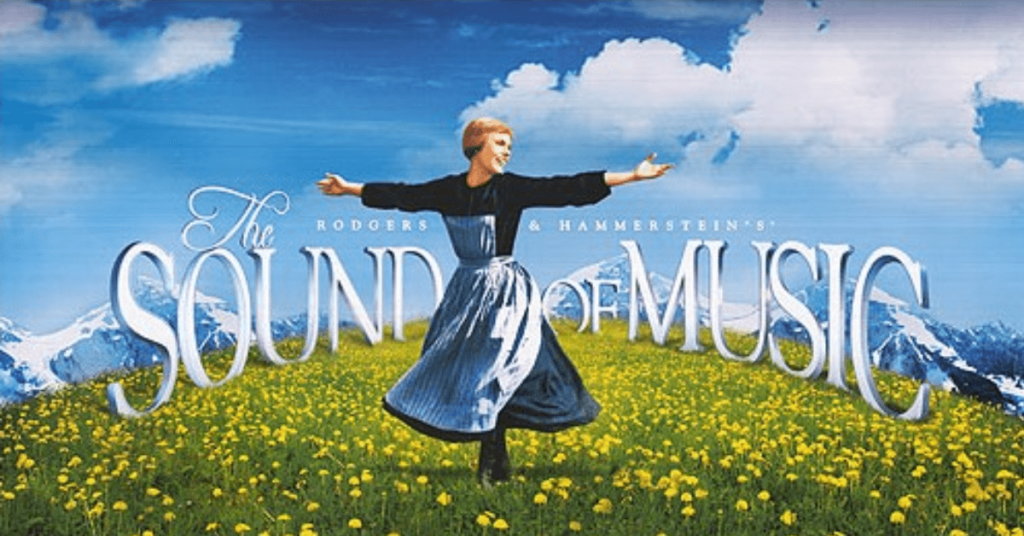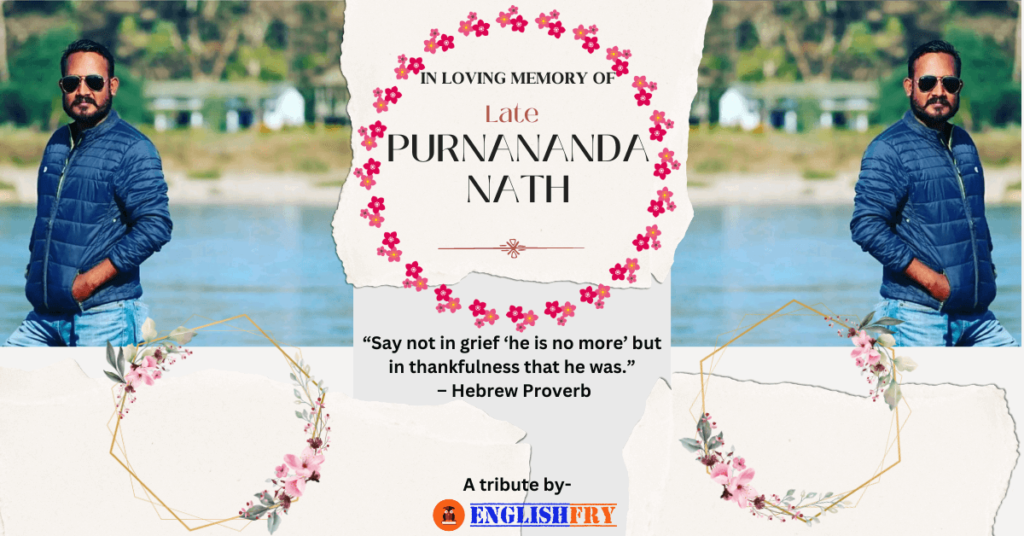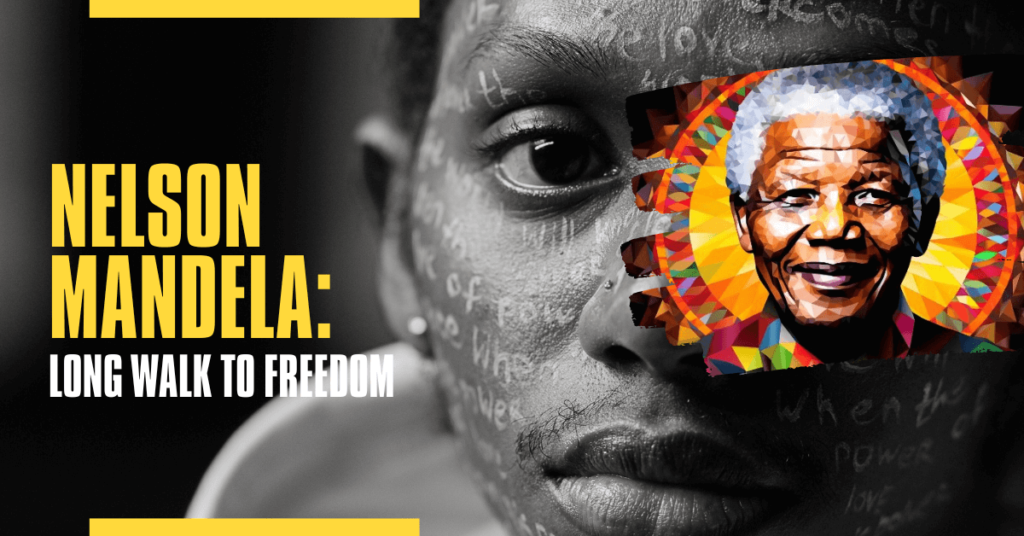The Sound of Music -Summary
It sheds light on the life of Evelyn Glennie, a renowned multi-percussionist from Scotland, and the challenges she faced in her journey to becoming a successful musician. Despite being completely deaf, Evelyn possesses a unique ability to experience music through her body rather than relying on her hearing. While she lost her hearing at the age of eleven, it did not dampen her determination to pursue music. At school, Evelyn’s talent for the xylophone caught the attention of percussionist Ron Forbes, who encouraged her to feel the music rather than hear it. From there, Evelyn’s musical journey soared to new heights. Her audition at the Royal Academy of Music earned her one of the highest scores in the history of the institution. She has received numerous awards and recognition for her exceptional performances on an international stage, including the distinguished “Soloist of the Year Award” from the Royal Philharmonic Society in 1991. Evelyn’s inspiring story serves as a beacon of hope for individuals with disabilities, and her unwavering determination continues to motivate those around her while enchanting audiences worldwide.

The Sound of Music -Hindi Summary
यह स्कॉटलैंड की प्रसिद्ध मल्टी-पर्कशनिस्ट एवलिन ग्लेनी के जीवन और एक सफल संगीतकार बनने की उनकी यात्रा में उनके सामने आने वाली चुनौतियों पर प्रकाश डालती है। पूरी तरह से बहरी होने के बावजूद, एवलिन के पास अपनी सुनने की क्षमता पर निर्भर रहने के बजाय अपने शरीर के माध्यम से संगीत का अनुभव करने की एक अद्वितीय क्षमता है।
हालाँकि ग्यारह साल की उम्र में उन्होंने अपनी सुनने की शक्ति खो दी, लेकिन इससे संगीत को आगे बढ़ाने के उनके दृढ़ संकल्प में कोई कमी नहीं आई। स्कूल में, जाइलोफोन के प्रति एवलिन की प्रतिभा ने तालवादक रॉन फोर्ब्स का ध्यान आकर्षित किया, जिन्होंने उसे संगीत सुनने के बजाय उसे महसूस करने के लिए प्रोत्साहित किया। वहां से एवलिन की संगीत यात्रा नई ऊंचाइयों तक पहुंच गई। रॉयल संगीत अकादमी में उनके ऑडिशन ने उन्हें संस्थान के इतिहास में सर्वोच्च अंकों में से एक अर्जित किया।
उन्हें अंतर्राष्ट्रीय मंच पर उनके असाधारण प्रदर्शन के लिए कई पुरस्कार और मान्यता मिली है, जिसमें 1991 में रॉयल फिलहारमोनिक सोसाइटी से प्रतिष्ठित “सोलोइस्ट ऑफ द ईयर अवार्ड” भी शामिल है। एवलिन की प्रेरणादायक कहानी विकलांग व्यक्तियों और उनके लिए आशा की किरण के रूप में काम करती है। अटूट दृढ़ संकल्प दुनिया भर के दर्शकों को मंत्रमुग्ध करते हुए अपने आस-पास के लोगों को प्रेरित करना जारी रखता है।

The Sound of Music -Assamese Summary
স্কটলেণ্ডৰ এগৰাকী বিখ্যাত মাল্টি-পাৰ্কাচনিষ্ট ইভেলিন গ্লেনিৰ জীৱন আৰু এগৰাকী সফল সংগীতজ্ঞ হোৱাৰ যাত্ৰাত তেওঁ সন্মুখীন হোৱা প্ৰত্যাহ্বানসমূহৰ ওপৰত পোহৰ পেলোৱা হৈছে। সম্পূৰ্ণ বধিৰ হোৱাৰ পিছতো ইভেলিনৰ শ্ৰৱণ ক্ষমতাৰ ওপৰত নিৰ্ভৰ নকৰি নিজৰ শৰীৰৰ জৰিয়তে সংগীতৰ অভিজ্ঞতা লাভ কৰাৰ এক অনন্য ক্ষমতা আছে।
এঘাৰ বছৰ বয়সত তাইৰ শ্ৰৱণ ক্ষমতা হেৰুৱাই পেলালে যদিও ই তাইৰ সংগীতৰ পিছত লগা দৃঢ়তাক ম্লান কৰা নাছিল। স্কুলত ইভেলিনৰ জাইলোফোনৰ প্ৰতিভাই পাৰ্কাচনিষ্ট ৰন ফৰ্বছৰ দৃষ্টি আকৰ্ষণ কৰিছিল, যিয়ে তাইক সংগীত শুনাতকৈ অনুভৱ কৰিবলৈ উৎসাহিত কৰিছিল। তাৰ পৰাই ইভেলিনৰ সংগীত যাত্ৰা নতুন উচ্চতালৈ উৰি গ’ল।
ৰয়েল একাডেমী অৱ মিউজিকত তেওঁৰ অডিচনে তেওঁক প্ৰতিষ্ঠানটোৰ ইতিহাসৰ অন্যতম সৰ্বোচ্চ নম্বৰ লাভ কৰে। ১৯৯১ চনত ৰয়েল ফিলহাৰ্মনিক ছ’চাইটিৰ পৰা বিশিষ্ট “বছৰৰ এককবাদ্যযন্ত্ৰবাদক”কে ধৰি আন্তঃৰাষ্ট্ৰীয় মঞ্চত কৰা ব্যতিক্ৰমী অভিনয়ৰ বাবে তেওঁ অসংখ্য বঁটা আৰু স্বীকৃতি লাভ কৰিছে অটল দৃঢ়তাই তেওঁৰ চৌপাশৰ লোকসকলক প্ৰেৰণা যোগাই থকাৰ লগতে বিশ্বজুৰি দৰ্শকক মোহিত কৰি ৰাখিছে।
WORD MEANINGS
Percussionist: a musician who plays percussion instruments such as drums, cymbals, or xylophones.
Extraordinary: something that is exceptional or unusual, beyond the ordinary.
Potential: the possibility or likelihood of developing into something in the future.
Vibrations: a rapid back-and-forth movement or oscillation of an object or a medium, producing sound waves.
Hone: to refine or perfect something, typically a skill or talent.
Accolades: praise or awards for achievement.
Differently-abled: a term used to refer to individuals with disabilities or who have different abilities than the norm.
Dedication: the quality of being committed to a task or purpose.
Inspiration: something or someone that motivates or stimulates creativity or action.
Determination: the quality of being firm in one\’s resolve or purpose, persistent and unyielding.
Textual /Extra Question and Answers
1. Why did Aurangzeb ban the playing of the pungi?
Ans:- Aurangzeb had banned the playing of the pungi because it had a shrill unpleasant sound.
2. How is a shehnai different from a pungi?
Ans:- The shehnai is made from a broader and longer pipe which has a natural hollow stem as compared to the pungi. Moreover, it has a very pleasant sound as opposed to the pungi which produces a shrill sound.
3. Where was the shehnai traditionally played? How did Bismillah Khan change this?
Ans:- Traditionally shehnai was played in temples and at weddings.
Bismillah Khan changed this by bringing the shehnai onto the classical stage.
4. When and how did Bismillah Khan get his big break?
Ans:- Bismillah Khan got his first break with the opening of the All India Radio in Lucknow in the year 1938. For he started playing there regularly and soon became a well-known and often heard shehnai player on radio.
5. Where did Bismillah Khan play the shehnai on 15th August 1947? Why was the event historic?
Ans:- Bismillah Khan played the shehnai from atop the Red Fort on 15th August.
The event was historic because this was the day when India gained independence and his recital was followed by Jawaharlal Nehru’s famous ‘Tryst with Destiny’ speech.
6. Why did Bismillah Khan refuse to start a shehnai school in the U.S.A.?
Ans:- Bismillah Khan refused to start a shehnai school in the U.S.A. because he could not bear the thought of being away from India and his beloved Ganga.
7. Find at least two instances in the text which tell you that Bismillah Khan loves India and Benaras.
Ans:- Two instances which tell us Bismillah Khan’s love for India and Benaras are-
Firstly, he refused an offer from one of his students to move to the U.S.A. to open a shehnai school there because he could not bear to be far from his beloved Ganga.
Secondly, he is remembered to have said that whenever he is in a foreign country, he keeps yearning to see India.
8. How old was Evelyn when she went to the Royal Academy of Music?
A. Evelyn was seventeen years old when she got admission in the Royal
Academy of Music, London. She was nervous as she boarded the train from
Scotland as she lived on farms in the countryside and was not exposed to the
life in cities. Evelyn was excited as she was about to begin her career in music
which was her aim in life.
9. When was her deafness first noticed? When was it confirmed?
A. When Evelyn was eight years old, her mother, Isabelle Glennie noticed that
Evelyn did not respond to her name being called out at the piano class. Evelyn’s
loss of hearing was gradual and for some time she was able to hide her
impairment from her teachers and friends. By the time she turned eleven, her
marks deteriorated, and her parents took her to a doctor. Then, it was discovered
that Evelyn was profoundly deaf.
10. Who helped her to continue with music? What did he do and say?
A. Evelyn was discouraged by her teachers but master – percussionist Ron
Forbes spotted her talent and potential. He guided Evelyn to feel music some
other way rather than hearing it. He got two large drums and turned them to
different notes. When he played the drums, Evelyn reacted to the distinct notes
differently. She realized that she could feel the higher notes produced by one of
the drums through the upper part of her body, above the waist and the lower
notes of the other drum through the lower part of her body, below the waist.
This worked well for Evelyn and gradually, she found that she could sense
different sounds and vibrations through different parts of her body.
11. Name the various places and causes for which Evelyn performs.
A. Evelyn made her first tour at the age of sixteen, when she performed with a
youth orchestra. She toured the United Kingdom and after that tour she decided
that she would make a career in music. She has made her name in the field of
music. Evelyn is a popular musician with a busy international schedule. Apart
from the regular concerts, she also does charity and performs for hospitals and
prisons. Evelyn also holds classes for young musicians.
Answer the question in two or three paragraphs (100–150 words).
12. How does Evelyn hear music?
A. Evelyn Glennie was passionate about music but unfortunately, she lost her
sense of hearing by the age of eleven. She wanted to learn playing the
xylophone but was discouraged by her teachers. They opined that as she could
not hear, she could not learn music. Master percussionist Ron Forbes spotted
Evelyn’s potential. He guided her to feel music some other way than to hear it
through her ears. He trained her by tuning two large drums to different notes.
Evelyn realized that she could sense different sounds and vibrations through
different parts of her body. She could feel the higher notes produced by one of
the drums through the upper part of her body, above the waist and the lower
notes of the other drum through the lower part of her body, below the waist.
This experiment worked well for Evelyn and she responded to the finer sounds
of music too.
Evelyn can feel music penetrate her body through various parts – cheeks, hair,
skin, etc. When she plays the xylophone, she feels the sound move from the
sticks into her fingertips. When the drums are played, she can feel the echo of
the drum beats through her body. Evelyn removes her footwear as she performs
on a wooden floor so that she can feel the vibrations produced by different
instruments pass through her feet up her legs. Thus, Evelyn has sensitized her
body to music.
13.Describe Bismillah Khan’s familial connection with music. (3 marks)
Bismillah Khan was born into a family of musicians. His grandfather Rasool
Bux Khan played the shehnai at the court of the king of Bhojpur. His father,
Paigambar Bux and his paternal as well as maternal uncles were shehnai
players. Bismillah Khan got the inspiration to play shehnai from his maternal
uncle Ali Bux at Benaras. He saw him playing the shehnai and was fascinated
by it. At the age of five, he started playing it.
14.Describe the character of Ustad Bismillah Khan. (5 marks)
Ustad Bismillah Khan has been portrayed as a great musician, a devout patriot,
and a liberal human being. He has been one of the most eminent musicians of
India, a shehnai master of great national and international fame.
Ali Bux, his maternal uncle, perfected him in music. Shehnai was brought to the
classical stage by Ustad Bismillah Khan. He practiced for hours and worked
The Sound of Music I Part-2 Summary
In Part 2 of the chapter “The Sound of Music,” we learn about Ustad Bismillah Khan, the shehnai legend and how the musical instrument ‘Shehnai’ originated. The ‘Shehnai’ was first played in the Mughal Emperor’s chamber by a barber from a family of musicians. He played it by closing and opening some of its holes to create melodious sounds. Bismillah Khan popularized this instrument and gave it a global platform. He belonged to a renowned family of musicians and created new tunes and raagas.
From a young age, Bismillah Khan was inspired by the flowing waters of the river Ganga and would play on its banks at the temple of Balaji and Mangala Maiya. He had a secular upbringing as he loved Benares and would play the shehnai every morning at the Kashi Vishwanath temple on the banks of the holy river Ganga.
Bismillah Khan got his big break with the inauguration of the All India Radio in Lucknow in 1938. He was also the first Indian invited to play the shehnai on India’s independence day on 15th August 1947. Over the years, he achieved infinite success and garnered immense praise from music lovers, both nationally and internationally for his soulful renditions. He received several accolades and awards in India such as the Padma Vibhushan, the Padma Bhushan and the Padma Shri. He was also the recipient of the highest civilian honour in India i.e. The Bharat Ratna.
Ustad Bismillah Khan represented India on the global stage too. He was invited to perform at the distinguished Lincoln Centre Hall in the USA and participated in the Cannes Art Festival, the World Exposition in Montreal, and the Osaka Trade Fair. He was so popular that an opera house in Teheran was named after him i.e. Tahar Mosiquee Ustaad Bismillah Khan. Despite having numerous opportunities far and wide, Bismillah Khan was very fond of India particularly, Benaras and his native town, Dumraon. On 21st August 2006, he passed away after a prolonged illness and left a legacy of soulful music behind him.







